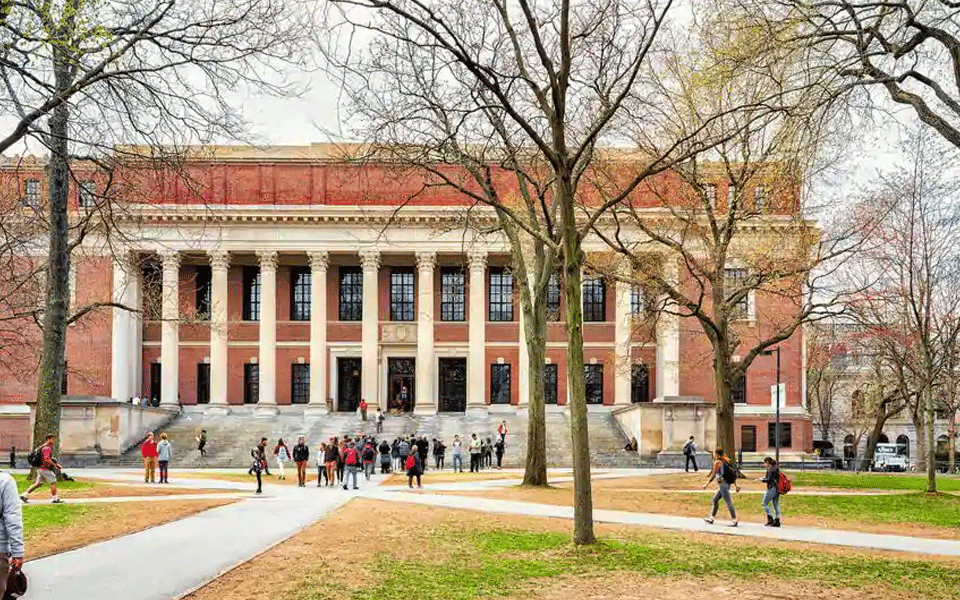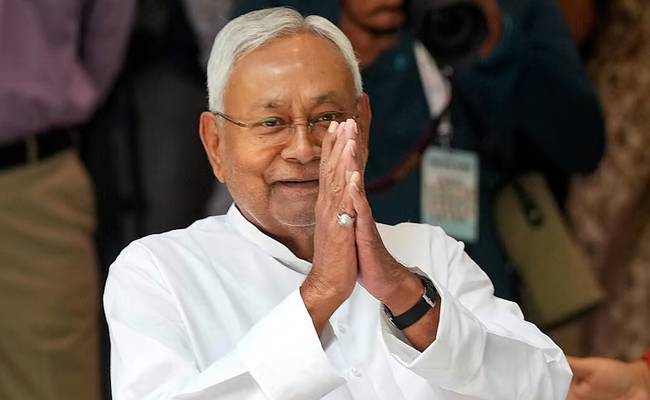Washington, Oct 16: Harvard University lowers its recruiting standards a bit for many students from rural regions, but not for Asian- Americans, to have diversity at its campus, the prestigious varsity's dean of admissions has testified in federal court as he defended the school's race-based admissions.
The dean, William Fitzsimmons, was the first witness to take the stand in a trial on Monday over whether Harvard discriminates against Asian-American applicants in violation of civil rights law.
Fitzsimmons, the longtime dean of the Harvard University since 1986, defended the admission policy of the university. He argued that the school lowers the admission standards a bit for many students from rural region, if they are not Asian Americans. This is to have diversity, he said.
Harvard attorney Bill Lee told the court without weighing a student's race, the university campus would either become much less diverse or less academically excellent. During the ongoing trial, Harvard University defended its holistic admissions process in which it considers race as one of many factors.
"People invited to apply from sparse country are 'unknown', 'other' and 'white', correct? John Hughes, a lawyer for the plaintiffs in the lawsuit, asked Fitzsimmons.
"Yes," said the dean, who has been in charge of Harvard admissions since 1986.
"Asians are not included in that list? Hughes asked.
"Not in that particular list," Fitzsimmons replied.
The plaintiffs say that the university holds Asian-American applicants to a higher standard than people of other races, and that it resorts to racial balancing to shape its incoming classes.
American Civil Liberties Union (ACLU) has opposed the lawsuit and supported Harvard's effort to have diversity in the campus.
"This case is not about educational equity or protecting the educational interests of a particular racial or ethnic group. It is instead just the latest attempt to advance the misguided arguments for race blindness, recycling the tired myth of a post-racial America. If you cannot acknowledge someone's race, you risk not acknowledging them," said Dennis Parker from ACLU's racial justice program.
The number of Asian-American students at Harvard has remained at 20 per cent for years, while the number of those applicants from this segment of the society has increased significantly.
Let the Truth be known. If you read VB and like VB, please be a VB Supporter and Help us deliver the Truth to one and all.
Bengaluru (PTI): Karnataka Home Minister G Parameshwara on Wednesday said that the police have booked a case against those who took out a protest march in the city recently, without permission, condemning the killing of Iranian Supreme Leader Ayatollah Ali Khamenei.
A large number of Shia Muslims gathered in Richmond Town on March 2 to mourn Khamenei's demise and held a protest march.
"A section of the minority community has accepted Khamenei as their religious leader. When he died, naturally they felt the pain and expressed it. But it should have happened within the framework of the law of the land. They had not sought any permission for the procession and no permission was given," Parameshwara said in response to a question.
Speaking to reporters here, he said, "They went ahead with the procession. So, the police have taken action by registering cases against them. In the days ahead, we will not let them hold any processions. As there are court orders not to permit any procession in the city, it can be done at Freedom Park if needed. The government is strictly abiding by the court orders."
Responding to a question about a Congress legislator also being part of the protest march, the home minister merely said, "We will strictly follow the rules."
Khamenei was killed in an airstrike in Tehran on Saturday during a joint Israel-US attack on Iran.





